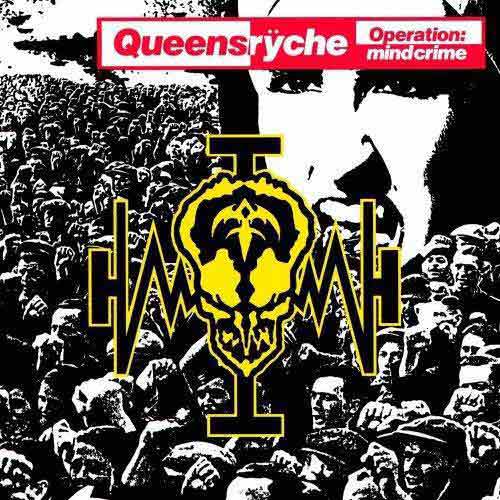The Magnum Opus of Concept Albums - 98%
The year is 1988. Ronald Reagan is in the last years of his presidency and the Cold War is nearing its conclusion. Despite rebounding from a severe recession through "Reaganomics", there is still a considerable gap between the rich and poor. Though the Soviet threat seems done for, scandals such as the Iran-Contra Affair have only exacerbated the American public's anger and mistrustfulness of the central government and its leader. Coupled with increased crime stemming from the war on drugs, many Americans are rightfully pissed. With one album, Queensryche encompasses and captures all of these feelings and concepts with the story of a drug-addicted revolutionary part of a conspiracy to clean America of corruption and deceit. Operation: Mindcrime succeeds in not only becoming Queensryche's crowning achievement and a cornerstone in the progressive metal genre, but it may very well be the greatest concept album of all time.
Operation: Mindcrime is a 15-track story about a heroin addict named Nikki who, disgruntled and fed up with the corruption he sees in the government and organized religion, decides to work for the mysterious Dr. X, who uses hypnotism and drugs to turn Nikki into a political asssassin. Along the way, Nikki falls in love with former prostitue-turned nun Sister Mary, who is used by Dr. X's associate Father William for the pleasure of the assassins of the order. As the romance develops, Nikki finds himself in over his head and tries to escape from Dr. X after being assigned a mission he cannot bring himself to carry out. What makes Operation: Mindcrime such an exceptional concept album is that the band is able to tell the story so well that it is very easy and clear to follow. Also, many of the songs are connected together through various interludes. Most concept albums are hindered by interludes as a way to try to separate the story into "chapters', but often times the flow of the story is needlessly interrupted. Queensryche is able to avoid this by having the songs flow continuosly with the interludes and by adding in key dialogue, make them essential to the plot.
While Operation: Mindcrime is considered to be perhaps the greatest and most important progressive metal album of all time (and rightfully so) the sound is actually somewhat different from the band's first two progressive albums The Warning and Rage for Order. While the progressive elements are certainly evident in the deep lyrics and instrumentation (especially in the near eleven-minute epic Suite Sister Mary), the album for the most part adopts more of a straight-forward hard rock/heavy metal feel with even a few flashes of pop. The adoption of a more rock/metal oriented approach actually aids the album in telling the story with catchy choruses and memorable hooks. Revolution Calling, easily the album's best song, not only helps paint the picture of the story about to unfold but is also the very defintion of an anthem with its memorable riff and unforgettable chorus in which Geoff Tate screams "Revolution Calling!" at the top of his lungs. The title track, while not as anthemic as Revolution Calling, has another memorable chorus and helps set the scene for Dr. X. Spreading the Disease, which tells the story of Sister Mary, is fast and in-your-face with powerful energy and aggression. Perhaps the album's biggest hit, I Don't Believe in Love, is not only a heart-breaking power ballad but contains a lot of power and heaviness to help bring out the emotion, once again with the help of Geoff Tate's masterful vocals. The final track and other album hit, Eyes of a Stranger, has a similar feeling of despair to I Don't Believe in Love but contains even more power and heaviness with an almost grinding riff. There is no such thing as a bad song on this album, but these five tracks are really the gems of the album and easily the best in the band's entire catalogue.
One final aspect of the album to note is the vocals of lead singer Geoff Tate. This would be the last album featuring his Bruce Dickinson/Michael Kiske-esque sounding vocals before adopting more of a relaxed style starting with the next album Empire. Though Geoff is and always has been one of the greatest and most gifted vocalists in all of rock/metal, this album he truly goes all out, whether through his melancholic lament in I Don't Believe in Love or his high-powered screams in Revolution Calling and Speak. Guest singer Pamela Moore also does a fantastic job portraying Sister Mary, her duet with Tate making Suite Sister Mary especially memorable.
With slick instrumentation, mind-blowing vocals and a story worthy of becoming an Oscar-winning movie (a Broadway adaptation is supposdedly in the works!), Operation: Mindcrime is without a doubt the greatest concept album of all time. As it perfectly describes the feelings of uncertainty and mistrust during the late 80's, this album is still relevant to the period of uncertainty and unrest that America has been experiencing today. The fact that its story can still hold such relevance more than a generation later is truly a sign of Operation: Mindcrime's greatness.

